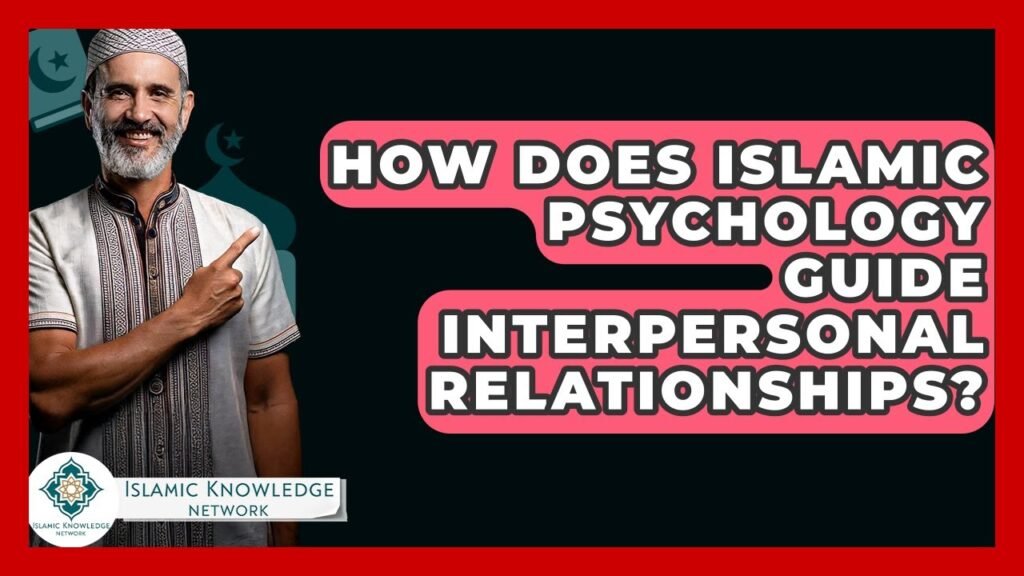Disclaimer:
The content published on this website is provided for general informational purposes only. Articles are generated with the assistance of artificial intelligence and are reviewed periodically; however, accuracy cannot be guaranteed in all cases. Readers are encouraged to verify important information from reliable and authoritative sources before relying on it. The website does not intend to mislead, and any errors found will be corrected when identified.
In the realm of interpersonal relationships, Islamic psychology offers profound insights rooted in the teachings of the Quran and the Sunnah. Understanding how Islamic principles influence our interactions with others can enrich our connections and deepen our sense of community. The framework provided by Islamic psychology emphasizes compassion, empathy, and respect, guiding individuals to nurture healthier relationships with family, friends, and society at large.
As we explore how Islamic teachings shape our interpersonal dynamics, it becomes evident that these principles are not just theoretical; they are practical tools for fostering harmony and understanding in our daily lives. By embodying values such as forgiveness and accountability, we are empowered to create stronger bonds and navigate conflicts with grace.
At Airlink Hajj and Umrah, we are dedicated to providing our readers with comprehensive insights not just on religious practices but also on the connections we build along our journey. Our blog features the latest updates on Hajj and Umrah, seamlessly integrating spiritual growth with personal development. Join us as we delve into how Islamic psychology can transform our interactions, helping us to cultivate meaningful relationships guided by faith and understanding.
How Does Islamic Psychology Shape Interpersonal Relationships?
Islamic psychology significantly influences interpersonal relationships by prioritizing principles such as compassion, empathy, and mutual respect. These values are deeply rooted in Islamic teachings, encouraging individuals to foster strong connections with one another. The concept of Ummah, or community, emphasizes that relationships are not just about personal interactions but also about collective responsibility and support. This creates a nurturing environment where individuals are motivated to care for one another, leading to enhanced social cohesion.
Moreover, Islamic psychology promotes the idea of Akhlak, which refers to moral character. Good character is essential in building trust and integrity in relationships. Through ethical behavior, patience, and forgiveness, individuals can resolve conflicts more amicably, creating harmonized interactions. This also aligns with the teachings of the Quran and Hadith, which emphasize the importance of kindness and understanding in all relationships.
As you explore our blog at airlinkhajjandumrah.com, you can find insights on how these psychological principles enrich social interactions in the context of Hajj and Umrah. Understanding the significance of relationships during these spiritual journeys adds depth to the overall experience, making it more fulfilling. Stay updated with our latest posts on Hajj and Umrah to deepen your understanding of these aspects and more.
FAQ on “How Does Islamic Psychology Shape Interpersonal Relationships?”
FAQs for "How Does Islamic Psychology Shape Interpersonal Relationships?"
1. What are the core principles of Islamic psychology that influence interpersonal relationships?
Islamic psychology emphasizes compassion, empathy, mutual respect, and the importance of intention (niyyah) in interactions, which are foundational for building strong relationships.
2. How does the concept of community (Ummah) affect personal relationships in Islamic psychology?
The concept of Ummah fosters a sense of belonging and collective responsibility, encouraging individuals to support one another and prioritize communal harmony over individual needs.
3. In what ways do spiritual practices enhance interpersonal relationships according to Islamic psychology?
Spiritual practices such as prayer (Salah), reflection (Tafakkur), and seeking forgiveness promote emotional well-being and improve conflict resolution skills, leading to healthier interactions.
4. How does the Islamic perspective on forgiveness impact relationships?
Islamic teachings emphasize forgiveness as a virtue, encouraging individuals to let go of grudges, which helps in mending and strengthening relationships.
5. What role does communication play in shaping interpersonal relationships within the framework of Islamic psychology?
Effective communication, guided by kindness, honesty, and active listening, is crucial in Islamic psychology, facilitating understanding and minimizing conflicts among individuals.
Mushu, an experienced Saudi Arabia traveler and writer, shares insightful tips and spiritual reflections to enhance Hajj and Umrah journeys for fellow pilgrims. He has been to Makkah and Madina from 2016 to 2023 many times and his posts will reflect this.







